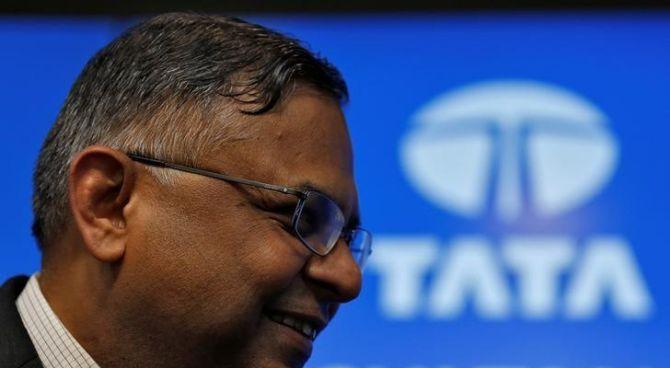There has been no change in Tata Steel’s strategy on operations in the United Kingdom (UK), company chairman N Chandrasekaran has told shareholders.

The statement comes amid growing concern about the restructuring plan in the face of change in government in the UK.
Tata Steel’s plan for the UK entailed a £1.25 billion investment plan agreed upon by the Conservative party-led government in September last year.
The proposal, which included a £500 million grant from the UK government, was to transition from an emission-intensive blast furnace to green-steelmaking through the electric arc furnace (EAF) route.
However, a change in the ruling dispensation earlier this month had led to growing concern about delay in restructuring.
Responding to shareholder queries on the impact of the change in government, Chandrasekaran said: “We have always had very good discussions with both the previous government and the current government.
"And we have been working very closely with the government, the unions and the local government in Wales.
"Everybody is working together to make sure the project is on track.
"And we don’t see any change in direction.”
However, Chandrasekaran added: “At the same time, we are constantly looking at how we can not only deliver on our downstream product commitments but also any other expansion opportunities with the right financial metrics so that we are able to serve the market, customers and also keep the employment.”
The transition from blast furnace to EAF technology puts 2,800 jobs at risk and the Labour government has been talking to try and save jobs, according to reports in the UK.
Earlier this month, Tata Steel shut down one of the two blast furnaces at Port Talbot, in South Wales, to stem losses of £1 million a day.
Another is said to cease operations by the end of September.
However, Chandrasekaran said this would be replaced with an equivalent capacity in EAF with an overall investment of £1.25 billion over the next three years including the support secured from the UK government.
On UK operations, he said, some sort of losses will continue for the first two quarters of the year.
“From the second quarter, things will slowly change. And we should start making a financial turnaround from the third quarter.”
Last week, Fitch Ratings revised the outlook on Tata Steel’s issuer default rating (IDR) to “negative” from “stable” and affirmed the IDR at “BBB-”.
The credit rating agency stated that the change in the UK government and the labour union’s actions to save job losses at Tata Steel’s UK operations may delay its plan to reduce losses through FY25.
On Netherlands operations, Chandrasekaran said, there was an urgent need to conclude the deal with the government there to be able to decarbonise and transform the plant.
“Discussions are going on and going well,” he said.
Laying out the future of the company, the chairman informed shareholders the company was continuing to invest in capacity as well as transformation towards new steelmaking to reduce decarbonisation.
In India, he said, Tata Steel has an ambitious expansion plan.
“It was around 12 mt (million tonnes) five to six years ago, now we are about 23 mt.
"And we are on our way to go to 30 mt in the next few years, expanding towards 40 mt.”
Tata Steel’s rated plant capacity will continue to increase year-on-year (Y-o-Y) for several years to come, he said.
“And barring a situation where commodity prices become very seriously impacted, I expect Tata Steel’s Ebitda (earnings before interest, depreciation, and tax) and the operating cash flow to continue to grow Y-o-Y for a long period of time.”
Tata Steel has been averaging a capex of around Rs 10,000 crore a year. However, Chandrasekaran assured shareholders it had put a rule to keep the debt-to-Ebitda ratio under 3.0.
“As we make more cash flows at the operating level after paying interest, we will try to pay down the debt year after year,” he said.
In FY24, the company’s net debt stood at Rs 77,550 crore, while gross debt was at Rs 87,082 crore.
Chairman speaks
On India plans: Capacity will not only be ramped up in Kalinganagar but also in the electric arc furnace this year.
An additional expansion will take place in the next phase of Kalinganagar as well as NINL
UK: Adopted a clear strategy to transition to a sustainable, and profitable future by exiting the existing end-of-life heavy end assets, both from a decarbonisation perspective and from a safety perspective.
This will eliminate losses
Netherlands: In discussions with the Dutch government for financial and policy-level support on a major decarbonisation plan to replace one of the two blast furnaces












 © 2025
© 2025